Everyone has told a little white lie to get a red-hot job, amirite? You do what you have to get your foot in the door. But, telling a lie in production is a gift that could keep on giving as long as there is work to be done or a film that stands the test of time. It can also stop a production in its’ tracks.
It is important to know which lies to let slide, which to nip in the bud and which you may have to bounce back from when that happen on your set. There are certain lies you can be prepared for on your set. But in case some pop up that you weren’t expecting, today we’re going to show you how to bounce back before you lose control of your productions.
Don't Sweat the Small Stuff
1. Little white lies
Unlike most industries, lying is almost a necessary survival skill in Hollywood. Whether you are an actor or producer, you will be asked at some point to fudge the truth whether it be about where you’re from or how much money you’re working with.
As a young actor, you will, must, and should do anything you can to get into the room, or someone else will.
I was in Los Angeles for nearly a year before I finally received a call to audition for a studio film. I admit now, many years later that it was a lie that got me the audition. Some lies, of course, are whiter than others.
My lie? I said I was African in order to get into the casting for Amistad.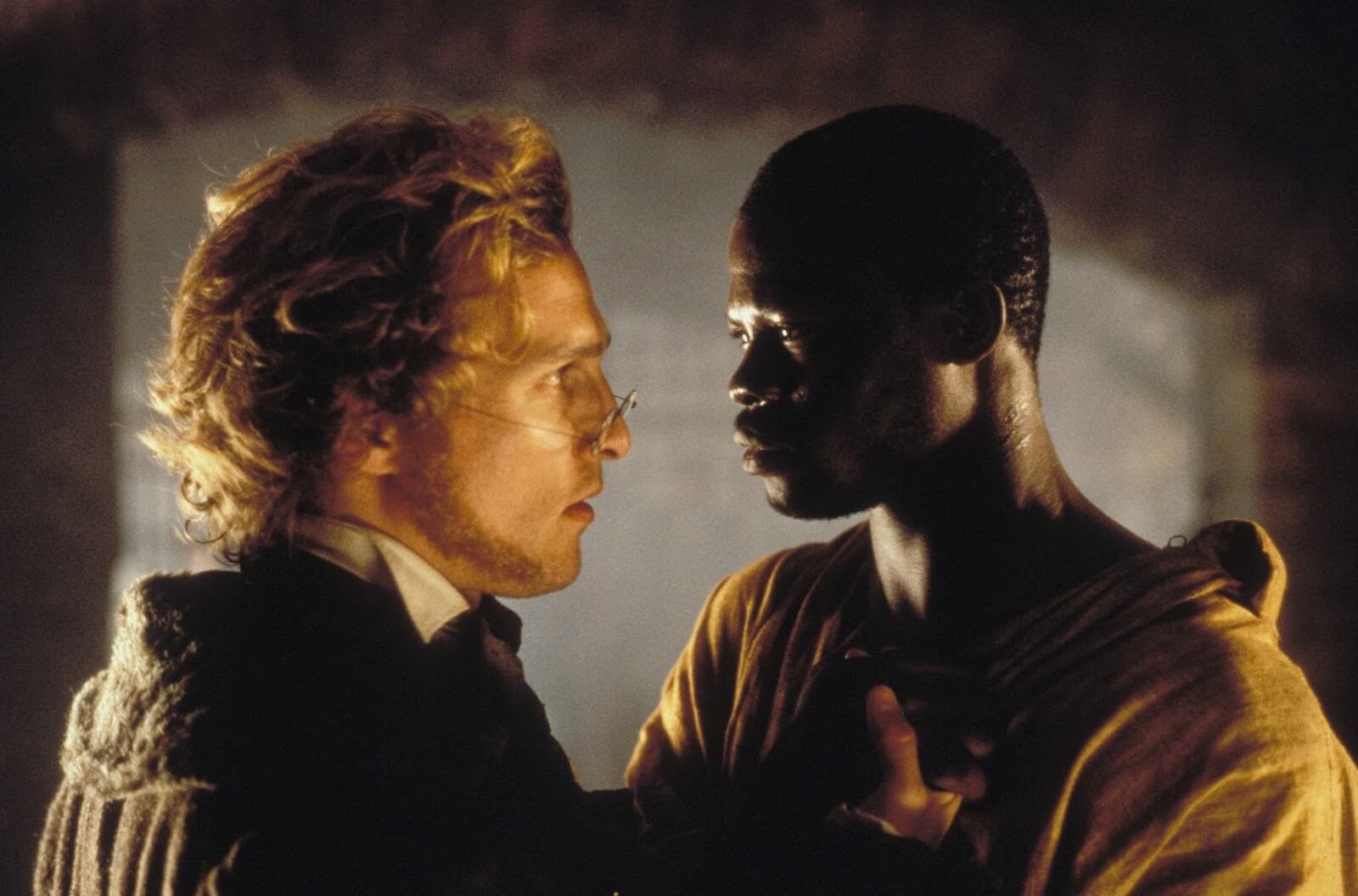
Djimon Honsou and Matthew McConaughey in Amistad
They couldn’t tell from my headshot I am sure, but even a brief glance at my resume leaves no doubt that I am not African.
But I got the call. My first audition in Hollywood for Steven Spielberg’s Casting Director, Victoria Thomas.
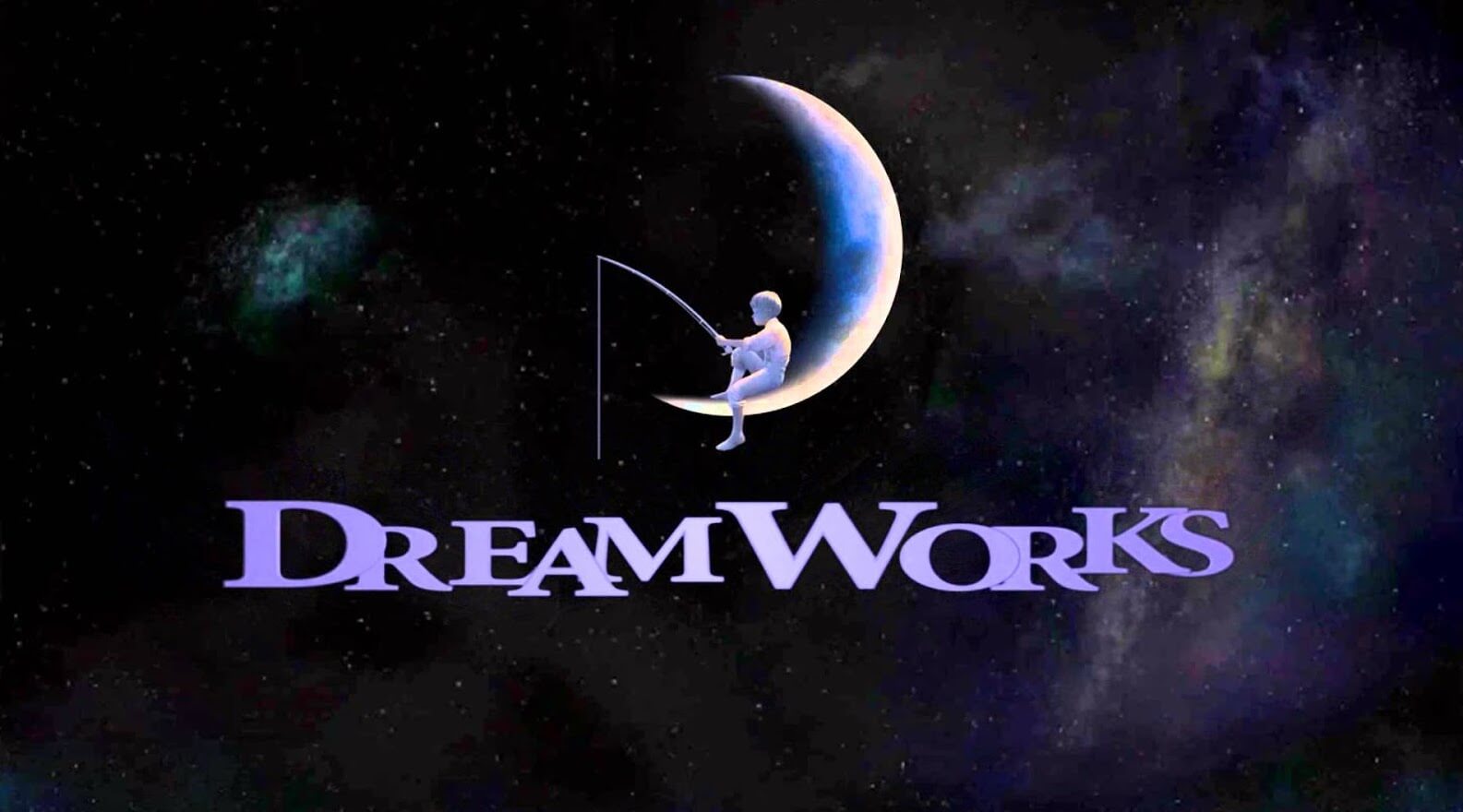
DreamWorks was my “first” stop in Hollywood
I pulled up to the Dreamworks Casting studios, then on Sepulveda north of Wilshire. I sat in the waiting room alone which is a very new experience.
As an actor, one is always in a room filled with people who look like parallel universe versions of oneself. That day, it was me and the back issues of Variety waiting for my audition.
The casting assistant called me in moments later.
The Casting Director asked for my slate. I put on my best nondescript, pseudo-African, definitely an accent, and say my name, height, weight, and age.
“Where are you from?”
“I am from Chicago… But my parents are Nigerian.” The Casting director eyes me suspiciously.
“What languages do you speak?
“English…” She raises an eyebrow. “Spanish and French…”
‘Hmmmm…”
My face began to burn hot with my lie. ‘Pull yourself together,’ I thought. You’re an actor playing an African. Act like it. I smile too big. My orthodontia-perfected smile belied my “African-ess”.
I leave feeling accomplished. I did not get a callback.
She saw my resume. She called me in. I didn’t waste her time and I certainly didn’t waste mine. I forever get to say that my first Hollywood audition was for director Steven Spielberg. I do wonder if he saw the tape.
The truth is, if you want to make sure about everything your talent says they can do, you should be checking the references on the resume. In the digital age, it is much easier to verify any information.
There is really no reason for surprises.
This especially true if you are an organized producer with a proper production management software like StudioBinder, at your fingertips.
If you are at the casting stage and need to organize your talent submissions and send out call sheets, or organize a production calendar from development to post production there are modern ways to do so.
Age and Other Lies
2. Plain white lies
Actors have lied about their ages since the first casting call so it comes as no surprise that in youth-obsessed town.
Casting directors look at actor demo reels in order to get an idea of an actors range or any pertinent information for their project.
Oddly enough, it has been younger actors who lied their way into roles that called for older actors.
Mila Kunis was only fourteen when she was cast on That 70’s Show. The Wonder Park actress explained that she didn’t directly lie to the producer’s face stating, “I’m gonna be eighteen…” She turned eighteen four years later.

Mila Kunis at age 14 on the set of That 70’s Show
Laurence Fishburne is another actor whose little white lie jump started his career.
Yours truly is an example of an actor who lies to get a part.
My very own agents called one evening to say that Wieden and Kennedy had an audition for British actors.
“Can you do a British accent?”
“Well, where do you think I’m from, Guvnah!”
“Chicago.” My agent responded. Not tomorrow.
I had just played Jerry Cruncher in a Tale of Two Cities. I received a pretty good review so my accent is up to par. Well, if I were auditioning for a nineteenth-century cockney chimney sweeper. I channel my favorite Brits, David Beckham, Kate Moss, and the Queen.
The next morning I went into the audition in my Abercrombie Rugby and my accent and convinced the producers that I was both tough and British.
I had to remember that I lied to get the job, which filled me with a certain dread. On the day of shooting, I got into character the moment I stepped on set. You couldn’t tell that I wasn’t from Croydon. One of the other “Brits” asked where I was from.
“Croydon, I’m originally from Croydon.”
“You don’t sound like you’re from Croydon.” He stared at me matter-of-factly. I’m glad I can’t blush.
“I’ve been here for a long time. Trying to sound more American for work.” He nodded in agreement. The truth is my British accent is closer to Princess Margaret than David Beckham unless I really try.
It does comfort me that I am not the only actor to pretend to be British.
Chloe Grace Moretz knew how to get the role in Hugo
So what should a producer do if they realize they’ve been duped in the casting process? If it has something to do with age, location or accent, the deed is done. Pride yourself on casting an actor who is versatile and good at what they do.
Although, if you discover it early enough it couldn’t hurt to send the script sides as soon as possible and have a dialogue coach on stand-by. You can use StudioBinder to keep you and your production team up to date, allows you to create sides in minutes, like so:
But an accent or a few extra years are tiny little untruths. The big one’s are a little more complicated.
Related Posts
No One Can Do It All
3. Lie-abilities
It is another thing altogether when talent lies about their abilities. This is especially true if that bit of talent is integral to the story or the way the way the story is told.
Season Five of Breaking Bad is partially set in Germany. For characters in the episode, the casting directors sent out casting calls for German-speaking actresses. The Scottish actress, Laura Fraser listed German as one of the languages she spoke on her resume.
Problem was, she could only speak a few words of German. But she gave one heck of an audition. She learned the part phonetically and in a few days, she could recite the German paragraph she was required for the role.
Any actor would have done the same. The calls are too few and far between to let a little thing like not speaking the language get in your way.

Ich Heisse, Laura. Ich spreche kein Deutsch
I have witnessed what happens when an actor is caught.
I auditioned for the Kate Hudson-starrer, The Skeleton Key, which required me to speak French.
While I was going over the scene, in front of the Casting Offices at 100 Universal City Plaza, another actor stood nearby doing the same.
“Skeleton Key?” I asked him.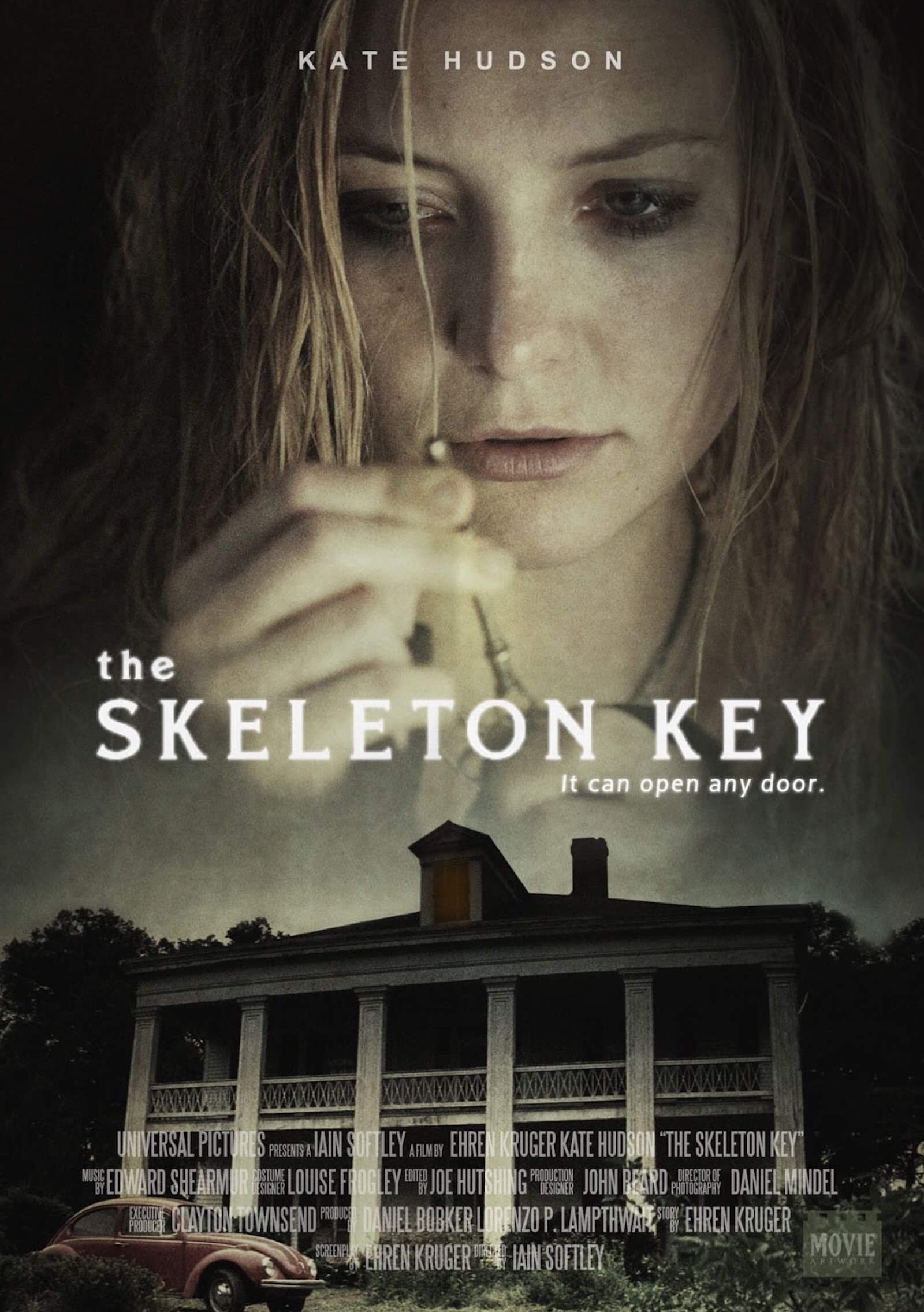
Actors lie about languages on their resumes, no big deal
“Yup…” He said. “You speak French?”
“Mais oui, bien sur. J'espère assez bien pour ce travail.” I said in my best, terrible French.
He looked at me without a clue.
“I have ten minutes to sound like that.” He drew from his cigarette.
“Let me hear you,” I ask and what he recites makes me audibly laugh.
I went over the dialogue with him. It was only a few lines anyway.
We are both In the casting offices ten minutes later and he gets called in ahead of me. Before I can turn my attention back to the sides, he reappears in the doorway. I don’t think I have ever seen anyone leave an audition quicker. The young, formerly black man looked more green-gray than he did when he went in. He didn’t even look at me but kept walking out the door.
The casting assistant appeared a moment later with tears in her eyes.
“I haven’t laughed that hard in a long time.”
“What happened?”
“Let’s just say he doesn’t speak French.” She grabs her tummy and doubles over. “He said it was... Canadian French!” The assistant burst out in a fresh guffaw and I learn a valuable lesson about lying on my resume.
Recently, an actor by the name of Todd LaTourette came clean to the world about the pretty big lie that landed him a series regular role in the hit show Better Call Saul. In the fall of 2018, he came clean about his struggles with mental illness. He opened up with the truth that he cut off his hand and cauterized it years ago when he went off his medication for bipolar schizophrenia.
Whether the revelation will help or hurt his career is yet to be seen. But this town feeds on publicity and the more notoriety the more advancement.
But, lying about abilities can have an adverse effect on a production.
From a producer’s POV, there is one thing that you should never lie about to get a job. Horses.
The list of actors who’ve admitted to lying about this is insane. Daniel Craig, Rachel McAdams, Eddie Redmayne, Anne Hathaway, and Clint Eastwood.
DID YOU KNOW?
Horseback riding is even more dangerous that motorcycle riding, as it carries a higher injury rate. According to one Internet report, on average motorcyclists suffer an injury once every 7,000 hours of riding. By contrast, an equestrian (horseback rider) may have a serious accident once every 350 hours.On the one, and hopefully only, Western that I have done, we did have an actor who did just this.
I saw first hand what happens when an actor's padded resume adversely affects the production.
The production team, meaning me, asked specific questions about the actor’s abilities. We were assured that not only was the actor not afraid of horses but that he also had experience riding.

Even English Actor Eddie Redmayne lied about his experience
On the day of the shoot, the trainer from Malibu Riders asks standard questions about his experience.
Minutes later the trainer and the set medic came to the production office and asked to speak with me. She says that she’s spoken with the actor and was unimpressed with his answers to the point that she didn’t feel comfortable allowing him on the horse supervised or not.
I taught the fundamentals of riding for children at Camp Cheerio when I was a camp counselor. I would never say that I am an intermediate level rider. But, I knew we should make sure that our actor was. I walked with the trainer and the medic back to the holding area off set.
I ask the actor to demonstrate a mount on the steed. He looks at me quizzically. “Could you get on?” I said, realizing he had no idea what I had meant.
He inched towards the horse, the trainer and nurse shook their heads.
”Can you help me get on?” He says to the trainer. She shook her head again and shot me a look.
‘Point taken.’ I think to myself. There is no point in embarrassing the actor at this point. I turn to the trainer. “Let’s talk to the director and 1st AD.”
The medic says to me, “I won’t let this actor get on the horse while I’m here.”
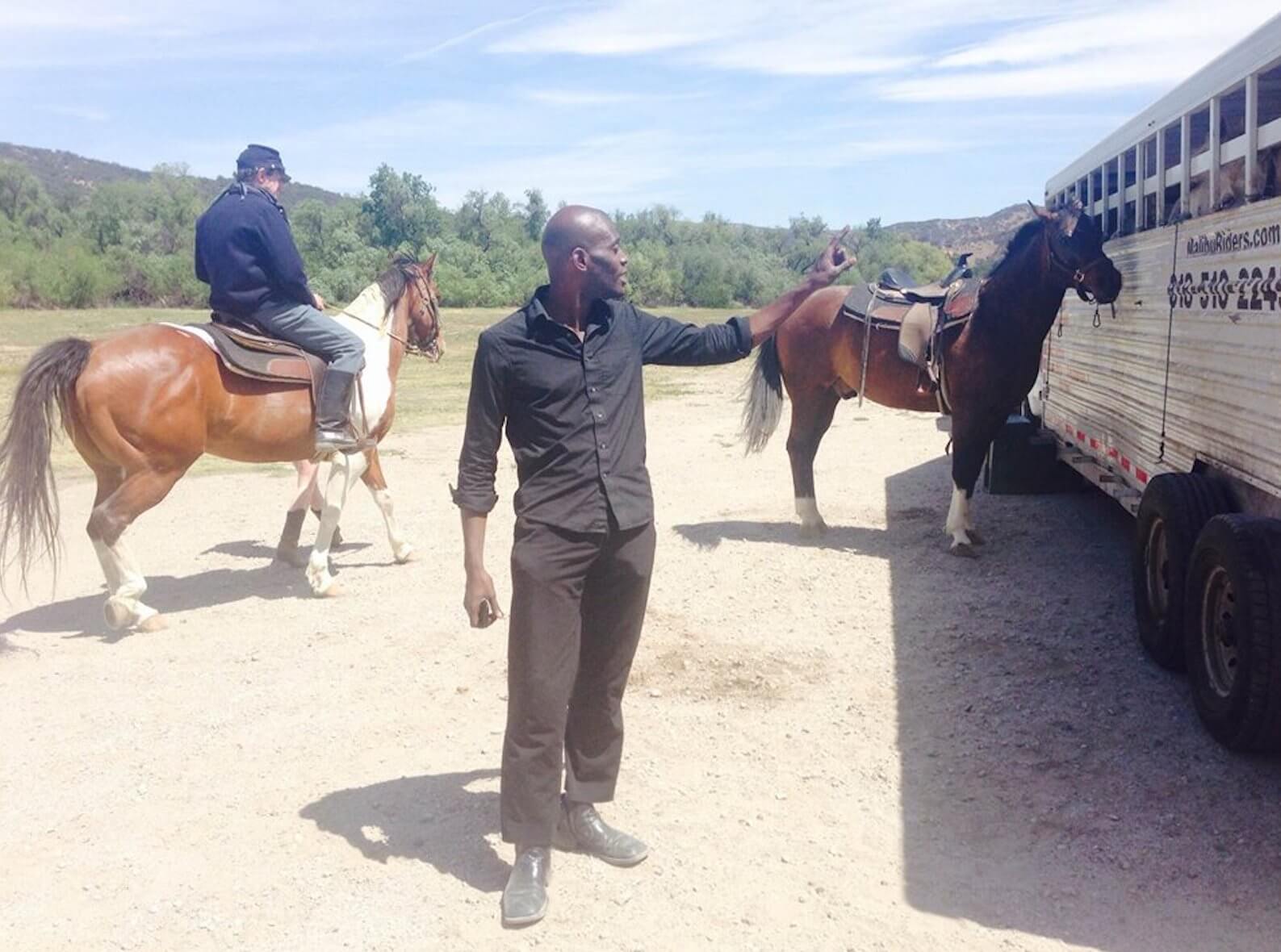
I’m not nearly as good as I indicate on my resume, either
The discussion was more irritating than anything. The director is, of course, insistent. As he is British, he doesn’t quite understand that Americans think they can do anything, but that doesn’t mean they can. I pull producer’s privilege.
Yes, we needed two horses to ride through the scene. But only one actor can ride the horse. I can’t allow the actor on the horse. Not even for one shot.
The director wants to fire the medic and me in order to get the shot because it’s on the shot list and the film can’t be done without it.
But, now, I’m in charge. There will be no actor on the horse. I start to think of any suggestions to ease the situation, which is now tense.
I turn to the trainer, “Are you a member of the Screen Actor’s Guild by any chance?” She shakes her head. “Do you want to be?”
About an hour later, I am filling out forms for SAG’s Taft Hartley as the trainer gets into make-up.
The 2nd AD comes to me and says there is another situation. Apparently, the actor is in tears and afraid he’s going to be fired. I reassure him that he’s already been filming for three weeks and let him know that we can’t fire him, he’s under contract and in thirty-three percent of the film. It would be too cost prohibitive.
The cost to production is two hours of time and an unexpected new SAG member and the fees that this will entail. Over lunch the 1st AD and I revisit the schedule and I revisit the budget.
TAFT HARTLEY DEFINITION
WHAT IS TAFT HARTLEY?
The Labour Management Relations Act or Taft Hartley Act of 1947 is a federal law that curtails the power of unions in hiring practices.
In modern use, Taft Hartley is when a producer or production company employs talent that is not a member of the Screen Actors Guild. The production entity must report the employment to the union in writing. This report is called a Taft Hartley Report and is due two weeks from the talents work date. The Taft Hartley report must also include the reason for the employment and the duration.
After we get the shot, we move on.
Because I am worried the director is going to hold the schedule change over me, I enter the corral and start moving set dressing so we can get one last shot before lunch.
I turn a barrel too quickly and the horse, about ten feet away, is startled and rears. In front of the entire crew, the giant beautiful creature had a little freak out at the uncertainty of my being in the corral. I look to the director and 1st AD. I didn’t have to say a word.
Related Posts
Hollywood Accounting
4. Mo' money mo' problems
There are bigger lies than lying about one’s ability in order to get a job. Lying about the film budget and film profit is par for the course in Hollywood. This dirty little secret is so pervasive that is almost expected at this point. How else do you teach the difference between Gross vs. net points?
Net vs Gross is a real debate
When a producer or investor or even director make up a number for the budget, it can have a very “deep impact” on the production.
I have been asked to lie about a budget on several occasions. It is usually so that a production becomes union signatory on a lower tier than would otherwise be acceptable.
Actor pay is another way this pops up in Hollywood.
The Screen Actors Guild usually requests the specifics of an actor’s contracted salary. They take this number and request a bond against the actor's SAG minimum.
Many producers negotiate another deal with the actor that doesn’t necessarily involve the union. This is beneficial to the producer in that the Union doesn’t get to hold more of the production funds. This is perfectly legal and accepted practice in Hollywood.
However, one way to get flipped is declaring the project a certain budget for one union and not the other, so the producer must be certain that the numbers add up.
Actor salaries are a well-kept secret for a reason. The benefits and perks are rarely included in the SAG contract.DID YOU KNOW?
Some of the expenses and perks included in star salaries include the following, in addition to their salary and agency fees:
- Private jets
- Private and 1st Class Accommodations
- First-Class Trailers
- Exercise Trailers
- Luxury or SUV Rentals
- Cell Phones
- Assistants with Pay, Accommodations and Travel)
- Publicist
- Stylist and Wardrobe
- Hair and Make Up Team
- Personal Trainers
- Nutritionist/Chef
- Stand In / Stunt Doubles /Masseuse
- Security
Now, with the onslaught of SAG New Media Contracts in effect since the ascendance of the streaming giants, savvy producers have even more leeway to hide film budgets.
The New Media contract permits rates for actors as low as $100 per day. But, many of the talent on the streaming shows make significantly more than the union-mandated minimums.
Robert DeNiro reportedly earned $750,000 per episode of the untitled Amazon project that was shelved after the Weinstein scandal.
Related Posts
Lies About the Budget
5. Fiscal film fibs
Lies about a film budget can have a very negative effect on the final film. Sometimes it is a simple lack of understanding of the importance of budgeting.
Actor-Director William Shatner learned this the hard way on Star Trek V: The Final Frontier.
The shoddy special effects in the film nearly killed the franchise.
Some of the effects include the shot of the shuttlecraft crashing onto the landing deck of the Enterprise, a scale model was placed on a launching pad connected to garage door springs. A crane was used to move the catapult into place.
Let’s just say you can tell in the film.
Producer Jason Blum and director Jordan Peele handled the bait and switch of California Tax incentives with aplomb.
The mega-hit, low budget movie, Get Out, initially began filming in Los Angeles, but when they realized that the California tax incentives would not be forthcoming, the production was forced to move to Alabama in order to get the picture in the can.
The cast and crew adapted quickly and principal photography was shot in twenty three days.
The Aftermath
6. Dust off your budget and schedule
Because there are many pieces that must come together in order for films to get made, the savvy producer has to remember that any little lie may affect the production, but that doesn’t mean it has to shut down your film.
The contingency line is there for just this reason. Actors are paid to lie to you. One more small “untruth” should not be the end of the world.
Contingency Definition
What is a contingency?
A contingency is a part of a film’s budget that is ten percent of the films total budget held to be used for emergencies and any cost that arise that may not have been previously accounted for.
On studio productions, the contingency is a requirement. Smaller films often rely on the backers or producers to act as a contingency.
An example of personal liability contingency include the film Rocky, which contractually obligated the producers to bankroll any budget overages.
What does a contingency cover?
- Loss and Damage
- Acts of Nature or Force Majeure
- Re-Shoots
The takeaway here is to do your homework on the actors and the backers before cameras are ready to roll.
Super-producer Linda Obst wrote a book called, “Hello, He Lied: & Other Tales from the Hollywood Trenches,” from where we get the name of this column. Her experiences and the title of the tome are a testament to the enduring climate of “untruths” in Hollywood as a rule.
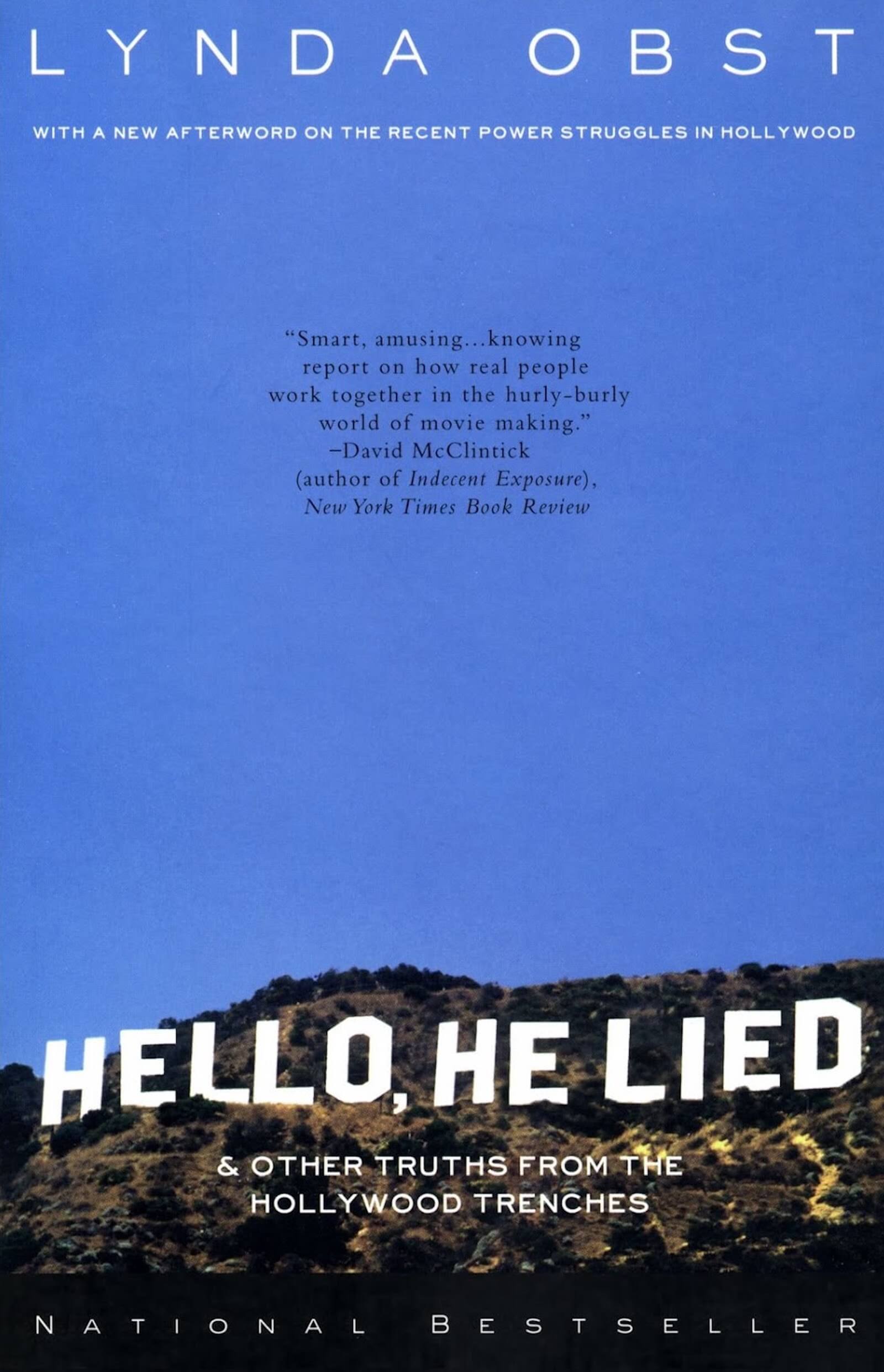
Producer Lynda Obst new the deal about Hollywood “mistruths”
But a little white lie should not get you down when the cameras are ready to roll and even the larger budgetary ones are not the end of the world if you have done due diligence as a producer.
“Hollywood problems” such as these can be quickly remedied if you have a production management software which makes pulling up every detail of your production much more simple in the digital age.
Related Posts
UP NEXT
An Insider's Hack to Casting Extras
Filmmakers and producers are sometimes forced to stretch the truth in other ways when it comes to what goes on-screen. Some insider tips will help you be honest with your budget and your talents. Keep reading further to learn how to multiply your background enough to fill a room, a theater, or even a stadium in our next column.
Showcase your vision with elegant shot lists and storyboards.
Create robust and customizable shot lists. Upload images to make storyboards and slideshows.
